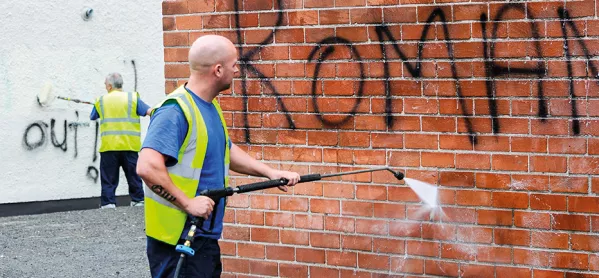Schools in England experienced significant spikes in “hate crimes” and “hate incidents” around the time of the Brexit vote and the election of US president Donald Trump, a Tes investigation has found.
Teachers and organisations working with young people have suggested that last year’s political events - and the media coverage linked to them - may have normalised hate speech and hate crime against ethnic minorities and foreign nationals.
Tes submitted freedom of information requests to all 39 of England’s police forces. Of the 32 that responded, 30 provided comparable data. It reveals that:
- In May last year - in the middle of the Brexit referendum campaign - the number of police reports of hate crimes and hate incidents in schools rose by 89 per cent, compared with the same month in 2015.
- The number of hate crimes and hate incidents in schools increased by 54 per cent from May to July last year - covering the run-up to the referendum and the immediate aftermath of the outcome - compared with the same three-month period in 2015.
- During the summer and autumn terms in 2016 - when the Brexit referendum took place and Donald Trump won the US presidential election - the number of hate crimes and hate incidents in schools increased by 48 per cent, compared with the same period in 2015.
Robert Posner, chief executive of the Anne Frank Trust UK, which runs a national programme tackling prejudice-related behaviour among young people, said the charity had heard more “disparaging” comments about refugees during school workshops since the Brexit vote in June.
“Language that we might consider to be either racist or prejudiced has become more normal and more accepted recently,” he added.
At the NUT teaching union’s annual conference over Easter, teachers warned of an upsurge in bigoted behaviour.
One Year 5 pupil had been overheard parroting Mr Trump and shouting “grab her by the pussy” in the playground of an East London primary, according to one delegate.
Rosanna Rackley, a supply teacher who works in Birmingham, said she had witnessed a rise in the number of students making racist remarks to their peers in the past year.
“I have definitely seen a difference and it did really kick off in 2016,” she said.
“People have been given permission to be racist or homophobic because world leaders are doing it.”
She said pupils at one Birmingham secondary had called a teacher who wore a hijab “Isis” to her face, but the victim had chosen not to report it to the school’s senior management team.
“It upsets her but also she realises that these kids have obviously heard something on the media or their parents have been saying something.”
Figures covering only “hate crimes”, rather than less “hate incidents”, show that 683 crimes were recorded in schools in the 30 police force areas in the summer and autumn terms of 2016. This represents a 35 per cent rise compared with the 505 crimes recorded over the same period in 2015.
The police have said the rise in the number of hate crimes recorded in schools may partially be explained by an increase in awareness of the problem.
The Metropolitan Police said there is “a growing willingness” of victims to report hate crime and an “improved awareness” among staff of the importance of identifying offences.
This is an edited article from the 5 May edition of Tes. Subscribers can read the full article here. This week’s Tes magazine is available in all good newsagents. To download the digital edition, Android users can click here and iOS users can click here




